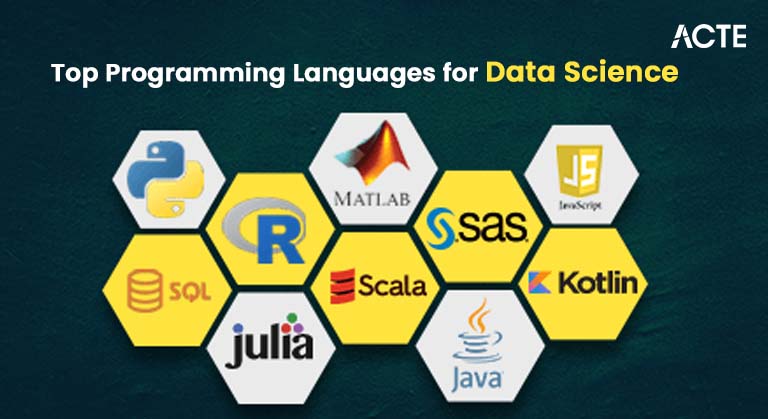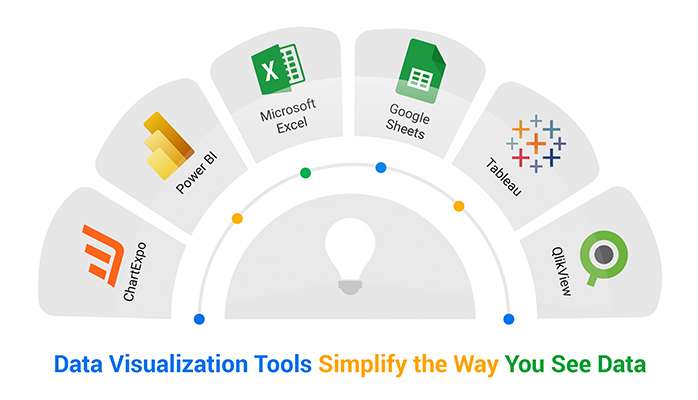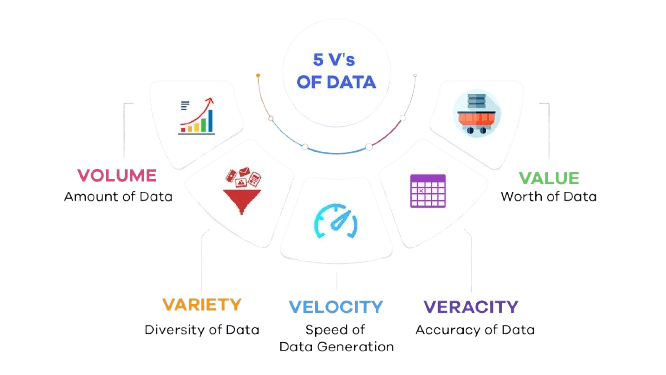
- Introduction to Data Science Skills
- Programming Languages (Python, R, SQL)
- Data Visualization Tools
- Machine Learning and AI Skills
- Statistical Analysis and Modeling
- Data Cleaning and Preprocessing
- Cloud and Big Data Skills
- Communication and Presentation Skills
- Domain-Specific Expertise
- Tools and Technologies in Demand
- Certifications and Courses
- Creating a Data Science Portfolio
- Conclusion
Introduction to Data Science Skills
Data science is a fast-growing and dynamic discipline that demands a unique blend of technical expertise, analytical thinking, and strategic business acumen. It involves extracting meaningful insights from vast and complex datasets to support data-driven decision-making and solve intricate real-world problems. To thrive in this field, professionals must undergo comprehensive Data Science Training and demonstrate proficiency in programming languages such as Python or R, advanced statistical analysis, machine learning algorithms, data wrangling, and effective data visualization techniques. Additionally, strong communication skills are essential to convey findings clearly to both technical and non-technical stakeholders. As data continues to play a pivotal role across diverse sectors—ranging from finance and healthcare to e-commerce, manufacturing, and cutting-edge technology—mastering these competencies opens the door to a wide array of high-demand, rewarding career opportunities in today’s data-centric world.
Eager to Acquire Your Data Science Certification? View The Data Science Course Offered By ACTE Right Now!
Programming Languages (Python, R, SQL)
- Programming language skills are the core for data scientists. Python is the most popular language because of its ease, flexibility, and rich libraries such as NumPy, Pandas, Scikit-Learn, and TensorFlow, which make it perfect for data manipulation, analysis, and machine learning. R is a robust language widely used for statistical computing and data visualization, with libraries such as ggplot2, dplyr, and caret.
- For data management in the database, SQL (Structured Query Language) plays a crucial role in querying and retrieving data from relational databases so that data scientists can efficiently filter, aggregate, and clean massive datasets. Mastery of these languages allows data scientists to work with intricate datasets and conduct strong data analysis.
Data Visualization Tools
Data visualization is pivotal for presenting findings in a clear and impactful manner. It interprets raw data into significant visual representations, allowing stakeholders to make data-driven decisions. Common tools are Tableau and Power BI, which are which are widely employed to build interactive dashboards and visual reports. Python supports libraries such as Matplotlib and Seaborn that facilitate the generation of static and dynamic visualizations, and Google Data Studio is used for real-time dashboards. Realistic data visualization skills help data scientists present complicated findings better.

Machine Learning and AI Skills
- Machine Learning Techniques and artificial intelligence (AI) are central to data science, so professionals can create predictive models and automate decision-making.
- ML skill involves proficiency in supervised learning (e.g., linear regression, decision trees), unsupervised learning (e.g., clustering, PCA), and deep learning methods using platforms such as TensorFlow, Keras, and PyTorch.
- Natural Language Processing (NLP) is necessary for processing textual data using libraries such as NLTK and SpaCy.
- With ML and AI mastery, data scientists can create algorithms that recognize patterns, predict, and automate.
Statistical Analysis and Modeling
Statistical analysis is the foundation of data science, enabling professionals to draw valuable conclusions from data and confirm hypotheses. The most critical skills are descriptive statistics (mean, median, standard deviation) and inferential statistics (hypothesis testing, p-values). Understanding probability distributions, i.e., regular and binomial distributions, is critical in predictive modeling. Regression analysis is also employed by data scientists to determine variable relationships and forecast future values. Statistical modeling skills are essential toto interpret data correctly and make data-driven decisions.
Excited to Obtaining Your Data Science Certificate? View The Data Science Training Offered By ACTE Right Now!
Data Cleaning and Preprocessing
Data preprocessing and cleaning are critical phases in the data science workflow, given that raw data tends to be dirty and inconsistent. Data scientists must be proficient in data wrangling methods, leveraging Pandas for Python or Dplyr for R to transform and clean data. Missing values handling via imputation or exclusion and outlier detection guarantee data integrity. Feature scaling and normalization are also required to prepare data for machine learning models. Proper data cleaning makes sure that reliable and correct models result in improved insights.
Interested in Pursuing Data Science Master’s Program? Enroll For Data Science Master Course Today!
Cloud and Big Data Skills
- As data grows, skills in cloud platforms and big data technologies are extremely valuable.
- Data scientists utilize Amazon Web Services, Azure, and Google Cloud Platform (GCP) for storage, processing, and deployment.
- Big data tools such as Hadoop and Apache Spark are critical for efficiently processing big datasets.
- Familiarity with NoSQL databases like MongoDB and distributed data processing frameworks is also required.
- Cloud and significant data expertise allow data scientists to scale their models and handle enormous datasets.

Communication and Presentation Skills
Effective communication is essential for data scientists to present insights succinctly to non-technical stakeholders. Strong story skills enable the conversion of complicated data into actionable insights. Clear writing reports, developing engaging presentations, and communicating findings through interactive dashboards or visualizations ensure insights that fuel business decisions. Data science Training, combined with the ability to work alongside cross-functional teams and communicate technical aspects in plain language, is an essential skill that makes a data scientist’s voice heard.
Domain-Specific Expertise
- Domain expertise is required to use data science successfully in practical scenarios.
- Data scientists in finance must know about risk modeling and detecting fraud, while those who work in the health sector leverage skills in predictive analytics and disease diagnosis.
- For e-commerce, domain expertise aids customer segmentation and recommendation systems, and for marketing, it enables sentiment analysis and campaign optimization.
- Industry-specific skills help data scientists provide more effective and relevant insights.
Preparing for a Data Science Job Interview? Check Out Our Blog on Data Science Interview Questions & Answer
Tools and Technologies in Demand
Knowledge of industry-standard tools improves a data scientist’s technical skills. Jupyter Notebooks and Google Colab are used extensively for data analysis and model development in Python. Apache Spark is heavily used for big data processing, whereas H2O.ai and RapidMiner provide automated machine learning (AutoML) facilities. Apache Airflow schedules data pipelines, thus becoming critical to workflow management. Proficiency in these tools increases data scientists’ efficiency and competitiveness.
Certifications and Courses
Getting certifications improves credibility and job prospects. Top certifications include Certified Data Scientist (CDS), AWS Certified Machine Learning – Specialty, and Google Professional Data Engineer. Microsoft Certified: Azure Data Scientist Associate is also widely recognized. Top universities offer courses through online learning platforms such as Coursera, edX, and Udemy, providing learners with practical experience and extensive knowledge. Certifications prove one’s expertise and enhance career opportunities.
Creating a Data Science Portfolio
- A solid portfolio presents a data scientist’s skills, projects, and knowledge, setting them apart from possible employers.
- Including actual projects demonstrating data cleaning, visualization, and machine learning ability is necessary.
- Posting code on GitHub or developing a personal site increases visibility.
- Presenting certifications, reports, and visualizations makes the portfolio stronger.
- A well-written portfolio emphasizes real-world experience and increases employability.
Conclusion
To succeed in the ever-evolving field of data science, individuals must develop a diverse and robust skill set that includes programming (such as Python, R, or SQL), statistical analysis, machine learning, data preprocessing, data visualization, and clear communication skills. These competencies are essential for interpreting complex data, building predictive models, and delivering actionable insights to drive informed decision-making. As industries across the globe from finance and healthcare to retail, logistics, and technology become increasingly reliant on data-driven strategies, possessing in-demand skills through Data Science Training opens the door to lucrative and fulfilling career opportunities. Furthermore, staying up to date with the latest technological advancements, pursuing relevant certifications, and building a comprehensive portfolio of projects significantly enhances a data scientist’s professional profile and marketability. With data science continuing to reshape the landscape of technology, business operations, and innovation, continuously refining and expanding one’s skill set is critical to achieving sustained career growth and long-term success in this high-impact domain.


